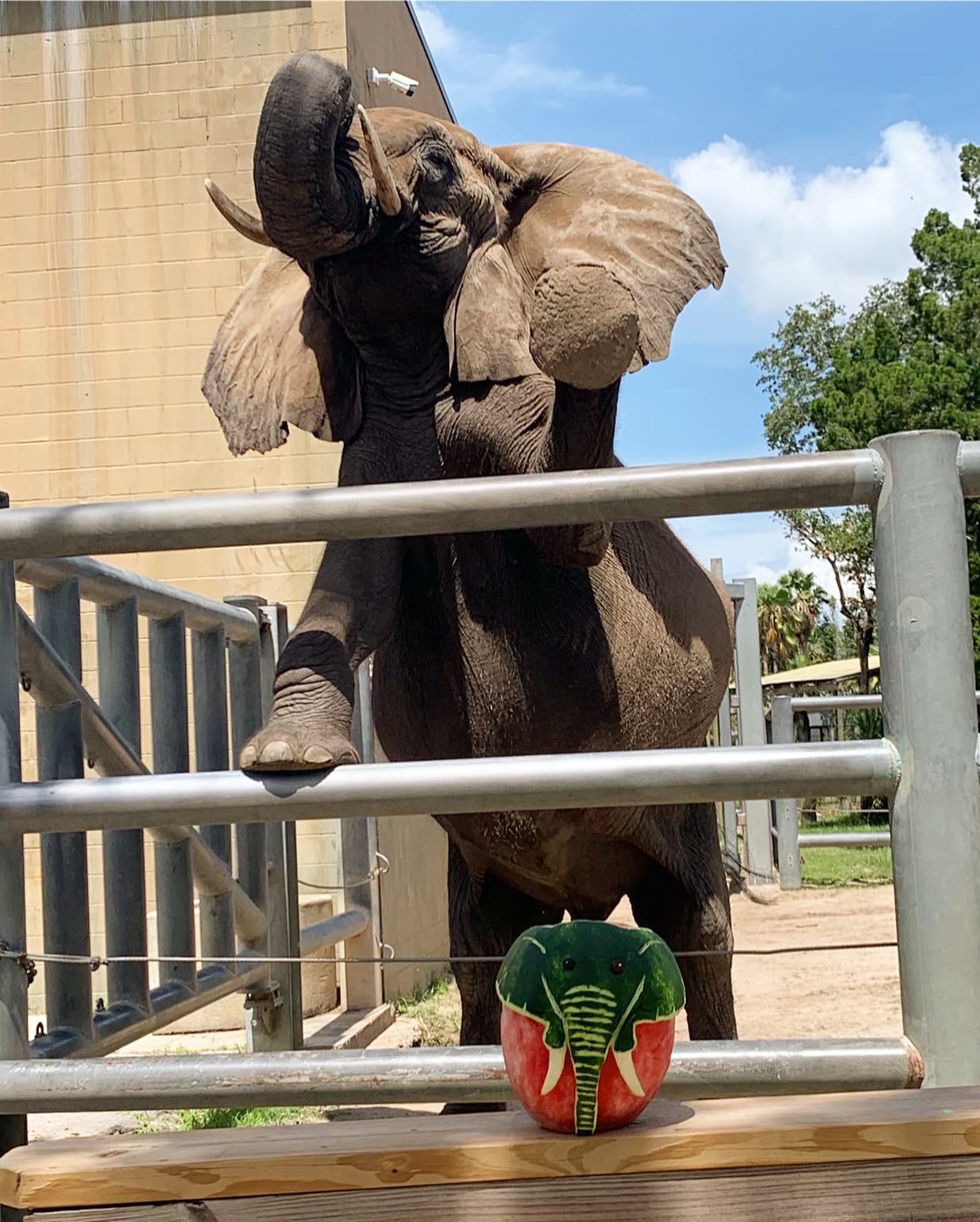Summary:
1. Our Commissary and Nutrition team at the zoo plays a crucial role in ensuring the health and well-being of all 1100 animals under their care.
2. From large mammals like African Elephants to smaller primates like Golden Lion Tamarins, the team provides a diverse and nutritious diet for each species.
3. The team also focuses on animal enrichment, using learned behaviors to promote mental and physical stimulation.
Welcome to the fascinating world of Our Commissary and Nutrition team at the zoo! While many visitors to the zoo may not fully appreciate the intricacies involved in ensuring the well-being of our animals, our dedicated team takes pride in their important role.
In the Commissary, we don’t just have a few animals to care for—we have all 1100 animals that we help feed and enrich! From the majestic African Elephants to the playful Golden Lion Tamarins and every bird, reptile, and mammal in between, our team ensures that each animal receives the necessary diet for optimal health.
One of the key aspects of our work is providing a diverse and nutritious diet for each species. Like humans, animals have unique dietary requirements based on their natural habitat and evolutionary adaptations. With the help of zoologists, nutritionists, and veterinarians, our team has developed specialized diets that mimic the animals’ natural food sources as closely as possible.
For example, our African Elephants need a significant amount of vegetation to thrive. We provide them with hay, fresh fruits and vegetables, and specially formulated pellets containing essential nutrients. It’s fascinating to see these gentle giants munching on their favorite treats, using their long trunks to delicately pick up each morsel!
But it’s not just the large mammals that receive special attention. Our Golden Lion Tamarins, known for their vibrant manes, have unique dietary needs. As omnivores, they require a combination of fruits, insects, and small vertebrates to meet their nutritional requirements. Our team ensures they receive a variety of food items that provide the necessary nutrients and stimulate their natural foraging instincts.
Aside from providing the right food, our team also focuses on animal enrichment. We understand that captivity can be challenging for any animal, and ensuring their mental and physical well-being is vital. Through operant conditioning, we use learned behaviors to engage the animals and provide them with mental stimulation.
For instance, we teach our African Elephants to raise their trunks on command, which allows us to inspect their oral health and administer medications if necessary. This enables us to monitor their well-being and strengthens the bond between our care team and the animals.
In addition to these learned behaviors, our team creates various enrichment activities to keep the animals engaged. This can range from hiding food in puzzle feeders for them to solve to providing novel objects or scents that stimulate their curious nature. Witnessing their excitement as they explore and interact with these enrichment items is truly a joy.
Focusing on nutrition and enrichment, our Commissary and Nutrition team ensures that the animals under our care lead fulfilling and healthy lives. We constantly strive to improve our practices by staying updated with the latest scientific research and collaborating with experts in the field.
So t,he next time you visit the zoo, take a moment to appreciate the incredible work thhind the scenes. Our dedicated team in the Commissary and Nutrition department plays a vital role in the well-being of our animal residents, ensuring that their dietary needs are met and their lives are enriched through stimulating experiences.
*****
Source Description
Our Commissary and Nutrition team is up next for
Here in the Commissary, we don’t just have a few animals to care for-we have all 1100 animals that we help feed and enrich!! From large mammals like our African Elephants to smaller primates such as our Golden Lion Tamarins and every bird, reptile, and mammal in between.
Our animal care teams can use learned behaviors like this with our African Elephants to ensure optimal health!


